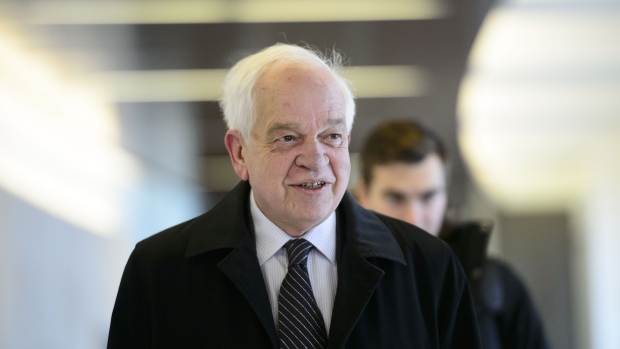Jan 23, 2019
Trudeau envoy sees strong case against Huawei CFO’s extradition
, Bloomberg News

A Huawei Technologies Co. executive facing extradition to the U.S. has “strong arguments” to make against extradition in part because of comments by U.S. President Donald Trump, Canada’s ambassador to China said.
John McCallum, in a news conference held Tuesday largely with Chinese-language media, highlighted Meng Wanzhou’s legal options after her arrest Dec. 1 in Vancouver. The U.S. is seeking her extradition, but such legal fights can take years.
“I think she has quite good arguments on her side,” McCallum said, in remarks posted to YouTube. “One, political involvement by comments from Donald Trump in her case. Two, there’s an extraterritorial aspect to her case. And three, there’s the issue of Iran sanctions, which are involved in her case, and Canada does not sign on to these Iran sanctions. So, I think she has some strong arguments that she can make before a judge.”
Trump has said he would consider intervening in Meng’s case if it meant reaching a better trade deal with China. A Canadian government official confirmed McCallum spoke Tuesday in Markham, a Toronto suburb with a large Chinese population.
“I think Ms. Meng has quite a strong case,” he said.
‘Impartial and Objective’
The comments by Justin Trudeau’s envoy to Beijing are the most detailed yet from the Canadian government on Meng’s case. They come on the heels of comments by Foreign Minister Chrystia Freeland distancing the government from the case.
“The detention of Ms. Meng was not about a Canadian case against her. She isn’t accused of anything in Canada. She is neither charged nor convicted of anything in Canada. We have an extradition treaty with the United States,” Freeland said Tuesday in an interview from Davos, Switzerland. The Huawei executive will “continue to have full access to the Canadian judicial system, which is impartial and objective.”
Since Meng’s arrest, China has detained two Canadians for national security investigations, prompting widespread calls for their release. China has also sentenced a third Canadian man to death on a drug charge.
“Our argument is that it is not good for China if they are seen to detain individuals when one of their big companies has an issue internationally,” McCallum said. “It is not good for the image and the reputation of these companies, and therefore for China.”
The Trudeau government, meanwhile, continues to weigh whether to restrict or ban Huawei from its 5G network. “There’s pressure on Canada to say no” because other countries in the so-called Five Eyes intelligence network have done so, McCallum said.
Meng’s arrest “was a total surprise for everybody in Canada, but it happened and we have to deal with it,” the ambassador said. Her next hearing is scheduled for early February and will deal with bail conditions.
Despite the diplomatic feud that resulted from the case, McCallum nonetheless holds out hope that relations with China can be repaired. “This is a hiccup along the road. It’s not a small hiccup, it’s a big hiccup, but we will eventually solve it and move forward.”









